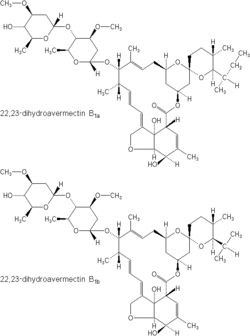Worm [R.sub.x] does double duty
Ivermectin, a drug widely distributed in Africa as a treatment for parasitic worms, takes an unexpected toll on disease-spreading mosquitoes, laboratory studies indicate. The tests suggest that many mosquitoes become infertile or die after ingesting blood from people who recently have taken the drug.
Ivermectin kills young parasitic worms in animals and people (SN: 10/6/90, p. 215). A single annual dose keeps humans free of new worms for a year. In the new study, Robert B. Tesh and Hilda Guzman of the Yale University School of Medicine allowed three species of tropical mosquitoes to dine on vials of human blood containing ivermectin levels comparable to those in people who have taken the drug within the past several days. Many mosquitoes became paralyzed and then died; more than half the survivors were left infertile.
Colin D. Ginger, a parasitologist with the World Health Organization in Geneva, Switzerland, notes that most people who take ivermectin have insecticidal concentrations in their blood for only about a week each year. The Yale finding nonetheless represents "an important phenomenon," he says, because ivermectin's effects on mosquito ovaries hint that the drug specifically targets neurohormonal systems. Researchers still don't know how ivermectin works against worms. "If you could crack this [mechanism] in insects," Ginger says, "it would give us an idea of what to look for in worms." That could lead to even better anti-worm drugs, he says, including some that might linger longer in the blood at mosquito-killing levels.
COPYRIGHT 1990 Science Service, Inc.
COPYRIGHT 2004 Gale Group



